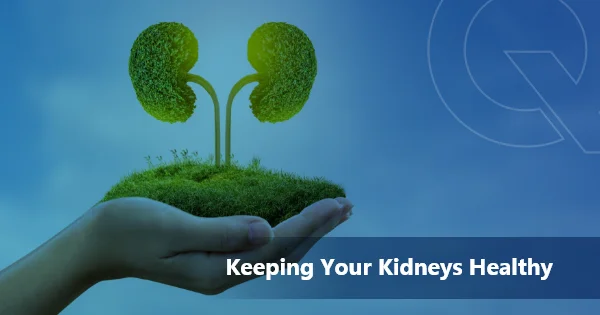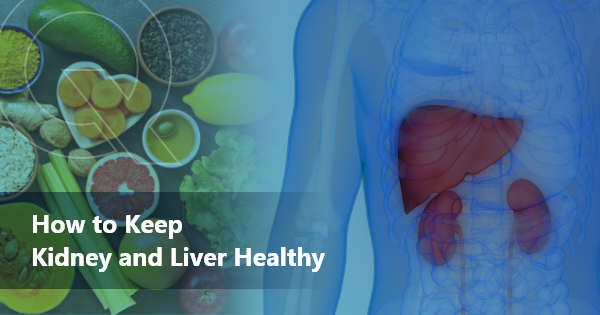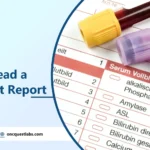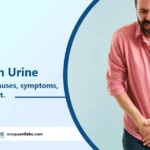Contents
Overview
Kidneys work hard for your body to function correctly. These bean-shaped organs have some incredible powers. Kidneys control your blood pressure, clean your blood, create urine, and manage Vitamin D production.
Millions of adults are living with kidney diseases, and most of them are not even aware of it. Reason: there may not be any noticeable symptoms during the early stages. Eating healthy, going for regular tests, looking out for symptoms and mentioning the symptoms to the nephrologist are some of the steps one can take to maintain healthy kidneys.
Where are the kidneys located?
Theysit deep in the abdomen (behind the liver and intestines), on either side of the spine.
The kidneys have several essential functions:
- They filter the blood to remove ‘waste products’ that the body doesn’t need
- To keep the amount of water in the body constant
They also secrete several essential hormones, which:
- help to regulate blood pressure
- keep our blood in a neutral non-acid state
- stimulate red cell production from our bone marrow
- ‘activate’ the Vitamin D we obtain from our diets and sunlight
What happens if something goes wrong in the kidneys?
Kidneys can develop abnormalities or stop working properly for many reasons resulting in kidney disease.
There are many types of kidney diseases:
Chronic Kidney Disease (CKD)
Any gradual abnormality of kidney function or structure is referred to as Chronic kidney disease. It is mainly caused by poorly controlled blood pressure and diabetes.
High blood pressure increases the pressure on the glomeruli. Glomeruli are a tiny network of blood vessels, and their primary function is to filter waste and remove extra fluids from your blood. Over time, the increased pressure damages these blood vessels, and kidney function begins to decline.
Diabetes is another major contributor to chronic kidney disease as increased levels of sugar in the blood damage the kidney vessels over time.
Early detection and treatment can focus on slowing the progression of kidney damage and may stop CKD from getting worse.
Chronic kidney disease may gradually progress to end-stage kidney failure, which requires dialysis or a kidney transplant.
Kidney Stones
Excess waste in the blood doesn’t let the body produce enough urine. As a result, crystals begin to form in your kidneys. These crystals attract other wastes and chemicals to form a kidney stone. The size of the kidney stones vary, and they usually come out of the body during urination.
Glomerulonephritis
Glomerulonephritis is an inflammation of the tiny filters called glomeruli in the kidneys. They are the cleaning units inside the kidneys that filter the blood. Glomerulonephritis can be caused by infections, drugs, or congenital abnormalities.
Polycystic kidney disease (PKD)
An inherited kidney disorder, polycystic kidney disease, causes fluid-filled cysts to form in the kidneys. These cysts can interfere with kidney function and cause kidney failure.
Urinary tract infections (UTIs)
UTIs occur when bacteria infect the urinary tract. Infection can sometimes leave the bladder and go up to infect the kidneys, which is a much more complicated infection.
Warning signs of kidney disease
Many people don’t experience severe symptoms until their kidney disease is quite advanced.
You should lookout for the following warning signs:
- Excessive or unexplained fatigue– this is caused by build-up of toxins and impurities in the blood.
- Insomnia and other sleep issues– caused by decreased kidney function resulting in a build-up of toxins in the blood.
- Poor appetite
- Muscle cramps due to Electrolyte imbalances resulting from impaired kidney function.
- Edema – swelling in feet, hands and ankles, as a result of fluid retention
- Swelling or puffiness around the eyes, especially in the morning, is due to the kidneys leaking a large amount of protein in the urine.
- Dry/Scaly skin– as the renal function falls, toxins accumulate in the body leading to itchy, dry and foul-smelling skin.
- Frequent urination, especially late at night
- Decreased mental alertness due to a buildup of toxins and impurities in the blood.
- Severe pain in the back, side or below the ribs
If your kidney disease has advanced, you may experience severe symptoms.
They include:
- Nausea and vomiting due to an extreme build-up of wastes in the blood (uremia)
- Loss of appetite
- Urinate more often, or in more significant amounts than usual
- Anaemia can cause tiredness, lack of energy, shortness of breath
- Decreased sex drive
- Sudden rise in potassium levels
Are you at risk for kidney disease?
Some people are more likely than others to develop kidney disease.
What puts you at risk?
- Diabetes is the leading cause of kidney disease
- High blood pressure is the second most common cause
- Older than 60 years
- If you have a family history of chronic kidney disease
- Atherosclerosis can reduce blood flow and cause scarring of the kidneys
- Smoking is harmful to the kidneys and can cause kidney disease to progress.
- Obesity increases the risk of developing major risk factors for chronic kidney disease, like diabetes and hypertension.
What is the Best Way to Keep Your Kidneys Healthy?
Kidney-Friendly Tips
7 ways to keep kidneys healthy
- Drink plenty of water: It helps to flush out infection-causing bacteria
- Control blood pressure: keep it below 140/90 mm Hg (or the target your doctor establishes for you).
- Control blood sugar: stay in your target blood sugar range as much as possible.
- Get moving: physical activity helps control blood pressure and blood sugar levels.
- Lose weight: Shed those extra pounds if you’re overweight.
- Opt for a kidney-healthy eating plan: reduce salt intake
- If you smoke, quit: smoking can worsen kidney disease
What are the treatments for Kidney disease?
The treatment will depend on the cause and the stage of kidney disease. Some of the treatments are:
- Medicines – to control and manage association problems such as high BP, high cholesterol.
- Kidney-friendly Diet- that’s lower in sodium, protein, potassium, and phosphate.
- Lifestyle changes – to help you stay as healthy as possible.
- Dialysis– treatment in case of advanced CKD
- Kidney Transplant is also recommended if kidney disease is advanced





